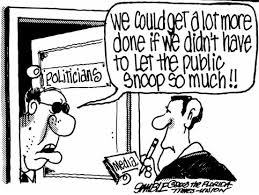On the third of April Mr. Vijay
Samant from the village of Bastora wrote an
open letter to the Chief Minister
Mr. Manohar Parrikar. This letter, he also sent to a number of the prominent
newspapers in the State with hope for publication, and no doubt, the initiation
of a public debate. Unfortunately for both Mr. Samant as well as our larger
society, that letter remained largely unpublished, at least until the
nineteenth of this month.

Mr. Samant’s letter to the Chief
Minister hinges on his concern regarding the 'abolition of house tax for
personal dwelling houses in panchayat area(s)'. The letter indicates that given
that there are a number of apartment blocks, and ‘holiday homes and
Portuguese-style houses in coastal belt
panchayat areas which are equipped with swimming pools, saunas, DG sets etc.
located in many villages especially in the coastal belt, such a move not only
closes the door to an age-old revenue generation option for village panchayats’,
but also smacks of ‘a typical populist and cheap policy initiative’. Mr. Samant
makes an argument that is typical of a number of critics of Mr. Parrikar’s pre-election
manifesto, and budget, that it is filled with populist sops; and fears that Mr.
Parrikar’s actions have been populist measures aimed at securing power, rather
than engaging in a long-term establishment of mature governance mechanisms for
the territory.

This column will not debate the
pros and cons of the Chief Minister’s action. What it will do however is to
focus on the possible significance of Mr. Samant’s letter. To be sure there
have been a number of open letters that have been written to politicians in
power, both in Goa and without. However in the context where Mr. Parrikar’s
position in power is being heralded as the possible start for utopian politics,
this letter assumes a larger significance than what one would normally grant
it, and is an interesting location from where to contemplate the changes we
would hope Mr. Parrikar would bring to realize better (rather than merely good)
governance in Goa.

As stressed in the last
installment of this column, the inauguration of Mr. Parrikar’s stewardship is
looked forward to as the mark of a new era. We expect things to be done
differently now. If a letter of the nature of Mr. Samant’s, had been written in
the course of Mr. Kamat’s time as CM, there would have been no hope of a
response. Furthermore, for very real reasons, Mr. Kamat’s tenure was seen as a
time when the State was ruled with an eye to the accrual of personal profit
rather than common interest and benefit. From Mr. Parrikar therefore, there is
the hope that his promise of good governance will mark the commencement of open
governance. For this reason alone, i.e. of the hope that is placed on Mr.
Parrikar’s shoulders, a letter such as Mr. Samant’s should not be seen as just
another open letter, but one heralding a new kind of politics. A politics that
is utopian, more participatory, and hopeful of responsive governance.

For someone who is acclaimed to
be a good administrator, with a technocratic predelictions, when queries, such
as those initiated by Mr. Samant, are raised, one should reasonably look
forward to what we could call, the Speaking State. To every query put to it, rather
than the stony silence, or the helpless hand-waving, of the Kamat-government, the
authorities of the State respond in detail, explaining its logics through which
the particular decision has been reached.

There are a number of reasons why
the Parrikar-government should set a precedent in initiating this development
of the Speaking State. To begin with, Mr. Parrikar unfortunately comes along
with the reputation of being a glib speaker, wriggling out of earlier verbal
statements, by claiming misinterpretation, or misquotation. This does
unfortunate damage to his reputation. Statements in writing, in the public
sphere would go a long way to challenging this perception. Furthermore, setting
up a system where the State can be relied on, and expected to deliver a
reasoned response for its actions, could perhaps be Mr. Parrikar’s lasting
contribution to ensuring a system of accountability of the State in Goa. Past
experience, especially of the recently concluded Kamat administration,
demonstrates that this has been woefully lacking in the past years. More
importantly, effecting this response would set up the necessary requirements
for the development of an educated public sphere, encouraging substantial
debate, hinging on reasoning and larger policy goals, rather than flimsy common-sense
and mud-slinging that largely marks Goan public debate. A reasoned response by
Mr. Parrikar, to Mr. Samant, in the neat, precise manner that he has
demonstrated on earlier occasions, even if those earlier responses have largely
been verbal ones, would set a welcome precedent on this front as well.
Mr. Parrikar, or any Chief
Minister, cannot however be expected to respond to every such letter individually.
Once more this letter opens to us a possibility; of the office of the Chief
Minister, and eventually those of the legislators, being composed of educated,
policy-wise persons, who can identify letters, and issues of concern in the
public sphere to the Chief Minister, aiding his response. This letter opens to us therefore, the
possibility of opening a new form of politics, encouraging a more dialogical
representative system.

To move on to other players in
this episode, in not publishing Mr. Samant’s letter, the Goan newspapers have failed
in their duty toward the construction of this public sphere. In failing to
publish this letter, and with the normally vitriolic Goan Observer alone
publishing the letter, the newspapers seem to have sent a couple of messages.
First, that critical discussion is not encouraged within the Goan public
sphere. This only goes to underline another perception of Mr. Parrikar, one
that dates from his earlier period in office; that he is hostile to criticism.
This silencing of critical voices then, does no favour to Mr. Parrikar; on the
contrary, it builds the platform for the persistence of such criticism. What
these newspapers fail to realize though, is that the era of the complete
dominance that the corporate-house run newspaper has over making (or breaking) Goan
news is at an end. With the lively adoption of the virtual space by the Goan
middle-class, issues can be introduced even when boycotted by the newspaper.
The newspaper can still however, through its editorial role, play a valuable
role in shaping coherent, informed debate, which is critical to creating a
public sphere that is necessary if the utopia that we all expect with the
coming of Mr. Parrikar to power is to come into being. Another impact of the
disregard of Mr. Samant’s letter, puts him in the unfortunate position of
looking like an enemy of the public, and Mr. Parrikar, rather than the public-spirited
individual, that he clearly is. This is a role we must all look forward to
play. In silencing his voice, the newspapers have done a great disservice to
this man, who is, as has been argued above, in fact a herald of the hope that
is placed in Mr. Parrikar for responsive governance.
(A version of this post was first published in the Gomantak Times dtd 25 April 2012)

No comments:
Post a Comment